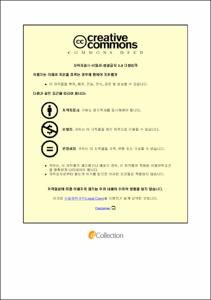외식업체 직장 내 무례함이 직무소진 및 이직의도에 미치는 영향
- Alternative Title
- The Effects of Workplace Incivility on Job Burnout and Turnover Intention in Foodservice Industry: Focused on Vietnamese Students in Korea
- Abstract
- The food service industry was recognized worldwide as a major contributor to the tourism industry. Over time, the rudeness of bosses, co-workers and customers continues to be a serious problem known to be costly to the organization and negatively affect the health and organizational continuity of its employees. In the 21st century, increasing rudeness in the workplace has had a negative impact on both the sustainability of employees and organizations. Academic researchers, and policy institutions have continued to pay attention to the impact of rude experiences in food service companies on employee well-being. However, there were very few studies that empirically analyzed the relationships between the rudeness of superiors and colleagues perceived by food service employees on emotional exhaustion and turnover intention.
In fact, because of paying their tuition and living expenses, most of the international students do part-time jobs such as working in restaurants, being language teachers, interpreters, translators, and doing part-time office workers. Due to the fierce competition in the food service industry, employees not only have to hide their negative emotions from customers and express them mainly with positive emotions in response to the organizational rule request to provide quality service but also have experienced many times rudeness from managers, co-workers. Due to this rude experience, workers in the service industry lose their psychological, emotional, and mental resources, and often fall into a situation of tension and fatigue in order to reduce the continuous emotional loss. In addition, as a result of such negative behavior, it has a negative effect on turnover intention.
Therefore, the purpose of this study was to investigate the effect of rudeness of superiors and colleagues on emotional exhaustion and turnover intention within a food service industry. The population of this study was to analyze how rudeness within the organization affects turnover intention through emotional exhaustion among Vietnamese students who have been working for more than 6 months as employees at restaurants representing catering companies. For the empirical analysis, a total of 195 valid samples collected from restaurant workers in Busan were used for the analysis. To analyze the survey results, frequency analysis, reliability analysis, and exploratory factor analysis were performed using the SPSS 26.0 package program. According to the results of the study, disrespect of superiors within the organization had a significant positive (+) effect on emotional exhaustion, but disrespect of colleagues within the organization was also found to have a significant positive (+) effect on emotional exhaustion. Also, emotional exhaustion was found to have a significant positive (+) effect on turnover intention. Based on these research results, in order to reduce the emotional exhaustion of negative factors and increase corporate performance, we suggest the academic and practical implications of establishing countermeasures and institutional support measures that can minimize the experience of rudeness within the organization of workers, and follow-up research has been suggested.
- Issued Date
- 2022
- Awarded Date
- 2022. 8
- Type
- Dissertation
- Publisher
- 부경대학교
- Affiliation
- 부경대학교 대학원
- Department
- 대학원 경영학과
- Advisor
- 전재균
- Table Of Contents
- 제 1 장 서 론 1
제 1 절 연구배경 1
제 2 절 연구목적 4
제 3 절 연구방법 및 범위 7
제 2 장 이론적 배경 9
제 1 절 상사무례 9
제 2 절 동료무례 11
제 3 절 직무소진 12
제 4 절 이직의도 14
제 3 장 연구 방법 15
제 1 절 연구모형 15
제 2 절 가설설정 16
제 3 절 변수의 측정 20
제 4 절 자료수집 및 분석방법 21
제 4 장 실증 분석 22
제 1 절 표본의 특성 22
제 2 절 신뢰성 및 타당성 검증 24
제 3 절 가설 검증 28
제 5 장 결 론 30
제 1 절 연구결과 요약 30
제 2 절 연구의 시사점 32
제 3 절 연구의 한계점 및 향후 연구 35
참고문헌 37
설문지 47
- Degree
- Master
- Files in This Item:
-
-
Download
 외식업체 직장 내 무례함이 직무소진 및 이직의도에 미치는 영향.pdf
기타 데이터 / 616.72 kB / Adobe PDF
외식업체 직장 내 무례함이 직무소진 및 이직의도에 미치는 영향.pdf
기타 데이터 / 616.72 kB / Adobe PDF
-
Items in Repository are protected by copyright, with all rights reserved, unless otherwise indicated.